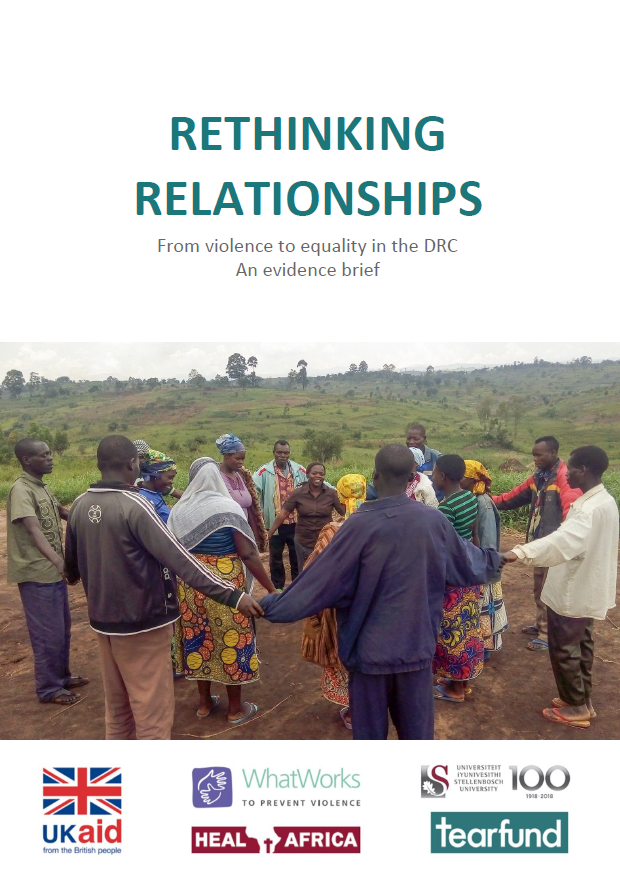Rethinking Relationships: From Violence to Equality in the Democratic Republic of the Congo (DRC)
This evidence brief focuses on the results from a two-year project in 15 villages across three rural health zones in eastern DRC that aimed to prevent violence against women and girls and make it unacceptable. The project sought to create spaces where survivors are supported by their own communities, including faith groups, and are not stigmatized; and where men and women form more gender-equitable, violence-free relationships.
The Democratic Republic of Congo (DRC) has experienced years of conflict. Millions have died or been displaced, and basic services have collapsed. Violence against women and girls (VAWG) is very high, fuelled by gender inequality. The 2014 Demographic and Health Survey in the DRC found that 57% of ever married women aged 15–49 had experienced intimate partner violence (IPV) in their lifetime and 16% had experienced non-partner sexual violence in the 12 months prior to the survey.
Congolese people are very religious, with an estimated 79% of the population Christian and 9% Muslim. Religious institutions are among the few functioning organisations in many parts of the country and often take on roles as informal providers of social services in the absence of the state or other NGOs.
Project overview
From 2015 to 2017, Tearfund and HEAL Africa ran a project in 15 villages across three rural health zones in eastern DRC. ntervention activities ran for 24 months focusing on primary prevention of VAWG. The project aimed to prevent VAWG and make it unacceptable, especially IPV. It sought to create spaces where survivors are supported by their own communities, including faith groups, and are not stigmatised; and where men and women form more gender-equitable, violence-free relationships. The project was part of the DFID-funded What Works to Prevent Violence Global Programme.
